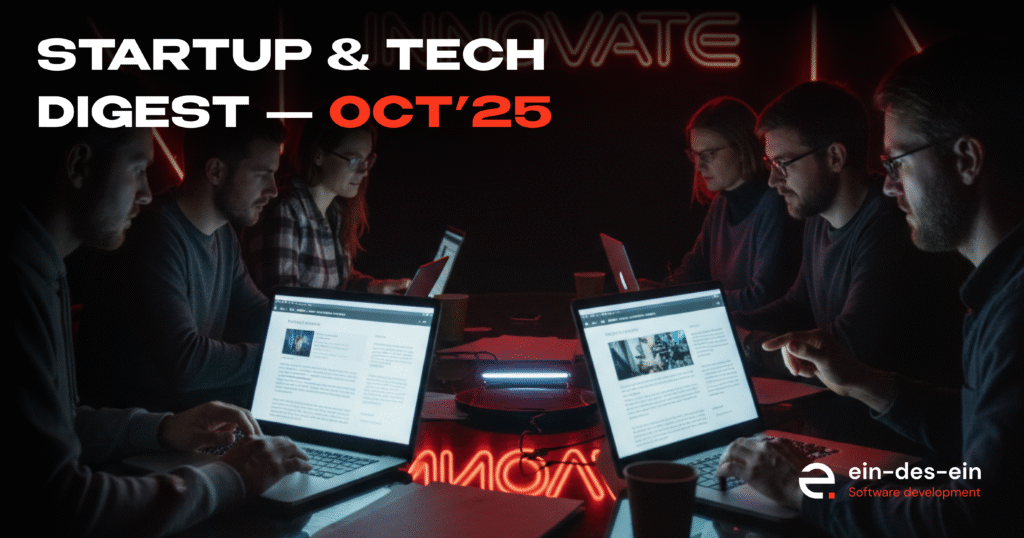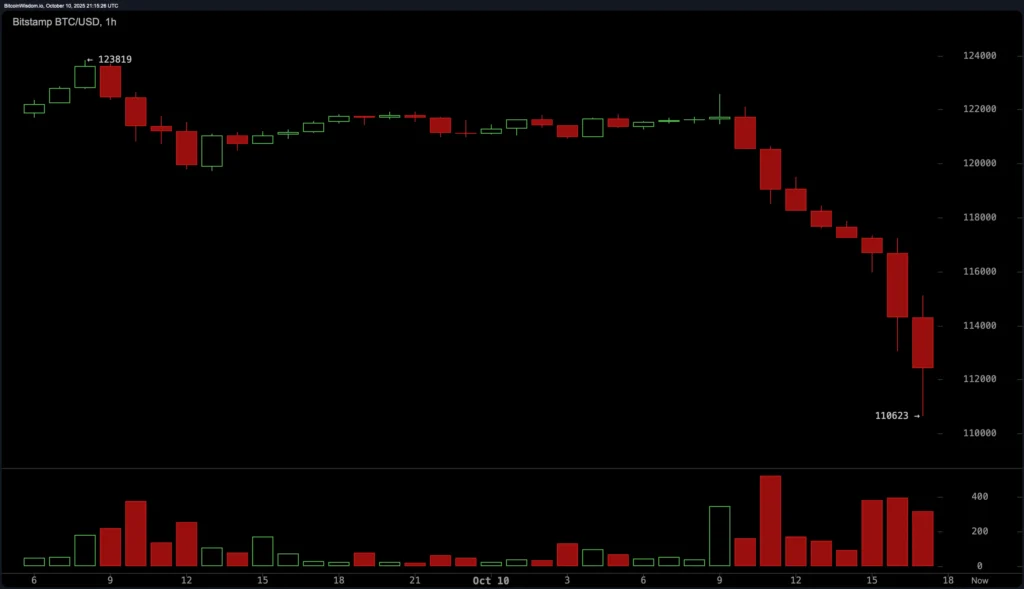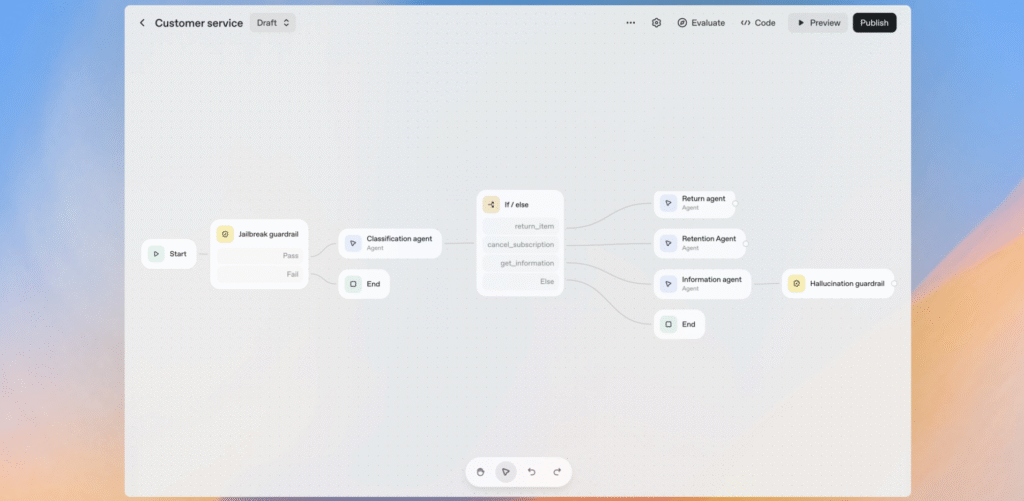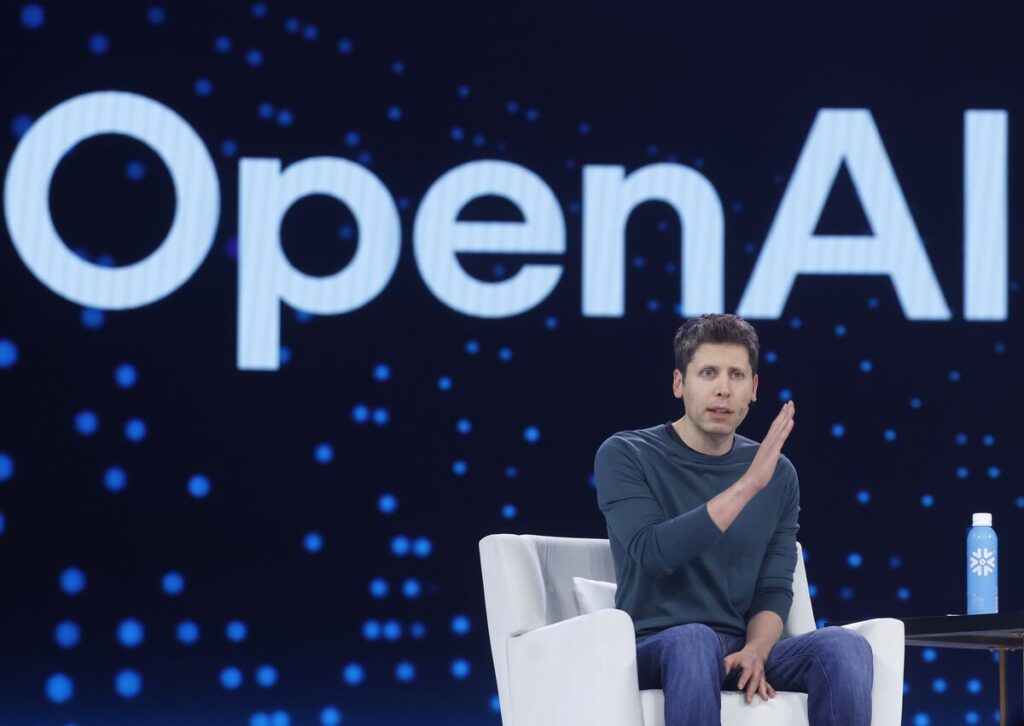Startup, VC & Tech Digest — October 2025


We know your time is precious, so here’s a quick digest of the most interesting startup, venture, and tech news from October that shook the world!
The Great Crypto Meltdown
On October 10, 2025, Bitcoin plunged from around $122K to $104K, triggering over $19 billion in liquidations and marking one of the largest single-day crashes in crypto history, mainly due to escalating U.S.–China trade tensions. The sell-off also hit Ethereum and many altcoins, affecting roughly 1.6 million traders, though Bitcoin began recovering in the following days. As of October 24, 2025, Bitcoin has stabilized around $111K, showing partial recovery while geopolitical uncertainties continue to influence the market.

Trump’s Tariffs Torch the Market
Just days before the Bitcoin crash, President Trump announced 100% tariffs on Chinese tech, sending both stock and crypto markets into panic and triggering massive sell-offs. This move contributed to the crypto liquidation event and broader market volatility, with investors scrambling to reduce exposure. Following the shock, companies are reevaluating supply chains and hedging strategies, while analysts expect continued short-term volatility as the market digests potential trade disruptions.

The Day the Cloud Fell
On October 20, an AWS outage broke the internet. Literally. Everything from banking apps to smart beds went dark for several hours after a DNS automation bug crippled the US-EAST-1 region. Even Alexa stopped talking. AWS quickly deployed engineers to roll back the faulty automation, restored services region by region, and promised a full post-mortem with improved failover protocols. The outage highlighted the fragility of centralized cloud infrastructure, causing some companies to accelerate multi-cloud strategies and backup system investments to prevent future disruptions.

Big Money for AI Infrastructure
Crusoe Energy Systems, the startup that turns otherwise wasted natural gas into power for AI-ready data centers, raised $1.38 billion at a ~$10 billion valuation. This is huge news because it shows how the AI boom is reshaping energy and tech infrastructure, creating opportunities (and risks) for companies worldwide that rely on massive computing power. Startups like Crusoe are solving a global bottleneck: AI needs more energy than traditional data centers can provide efficiently, and competitors are racing to capture this fast-growing, high-stakes market.

Reddit Takes Perplexity To Court
Reddit has filed a lawsuit against Perplexity and three other companies accusing them of using its data without permission to train Perplexity’s AI. Reddit monetizes this data through licensing deals with Google, OpenAI, and others — agreements that have helped the company become profitable. According to Reddit, it had already sent a letter to Perplexity back in May 2024 demanding that the company stop illegally scraping its data.

Deel Raises $300M Despite Corporate Spying Allegations
Deel, a global HR and payroll platform serving over 35,000 companies in 150+ countries, raised $300 million in a Series E funding round, bringing its valuation to $17.3 billion. Despite being involved in a legal battle with rival Rippling over alleged corporate spying, top-tier VCs including Ribbit Capital and Andreessen Horowitz backed the round. Deel has been profitable for three years, surpassing $1 billion in ARR and reporting $100 million in revenue for September, highlighting strong business performance. Meanwhile, Rippling has continued its growth, raising $450 million in May at a $16.8 billion valuation, showing that the lawsuits have not slowed fundraising in the HR tech sector.

xAI Nears $20B Capital Raise with Nvidia’s Backing
Elon Musk’s AI startup, xAI, is set to raise approximately $20 billion to support its Colossus 2 data center in Memphis. The funding includes $7–$8 billion in equity, with Nvidia contributing up to $2 billion, and up to $12 billion in debt. The deal ensures xAI priority access to Nvidia’s GPUs, fueling its ambitious AI training plans.

Harvard Falls Victim to Oracle Attack
Harvard University confirmed a data breach caused by a zero-day vulnerability in Oracle’s E-Business Suite (CVE-2025-61882), exploited by the Clop ransomware group. The attackers claimed to have stolen 1.3 TB of data, primarily from a limited number of administrative units, including some employee and financial records. According to Harvard, the breach did not affect the wider student body or research data, and the university is working closely with cybersecurity experts to investigate and contain the incident.

OpenAI Launches Agent Builder, Threatening Startup Ecosystem
OpenAI launched Agent Builder, a no-code tool that lets anyone create advanced AI agents using a simple drag-and-drop interface. The tool works with OpenAI’s ChatKit and Connector Registry, making it easy to embed AI agents directly into apps and workflows. The launch shook the market, putting no-code AI startups like n8n, Zapier, and Make under pressure as OpenAI’s solution is faster and more integrated. While Agent Builder makes it easy for businesses to prototype and deploy AI solutions, existing startups may need to rethink their tools and strategies to stay competitive.

Moonshot AI Raises $10M for Autonomous Website Optimization
Moonshot AI, a startup focused on self-optimizing websites for e-commerce, has raised $10 million in seed funding. The company uses AI to autonomously analyze user behavior, test different layouts, content, and design elements, and implement changes in real time, helping online retailers improve user experience and increase conversion rates.

OpenAI is hiring investment bankers to train its AI
Reportedly, they’ve already brought in over 100 professionals from top investment banks. The company pays around $150 an hour for experts who can write clear, plain-language prompts and build financial models for different types of deals.

And speaking of Open AI….
OpenAI Could Face Billions Over Pirated Library Allegations
OpenAI is still under fire for allegedly training its AI models using pirated books from LibGen, similar to Anthropic, which already paid $1.5 billion to settle. Plaintiffs claim internal Slack messages and emails suggest employees deleted evidence, potentially escalating legal exposure. They are now seeking access to communications between OpenAI and its lawyers to see if evidence was intentionally destroyed — a tricky legal area, but possible in extreme cases. If the court rules against OpenAI, damages could soar from $750 to $150,000 per book, dwarfing Anthropic’s settlement and setting a potential new record in copyright lawsuits. The case highlights the growing legal risks for AI companies relying on copyrighted material.

P.S. If you missed our September digest, here it is! Finding the article format a bit cumbersome? Subscribe to our Telegram channel, where we share the most interesting news as mini posts — no spam, just the essentials.



